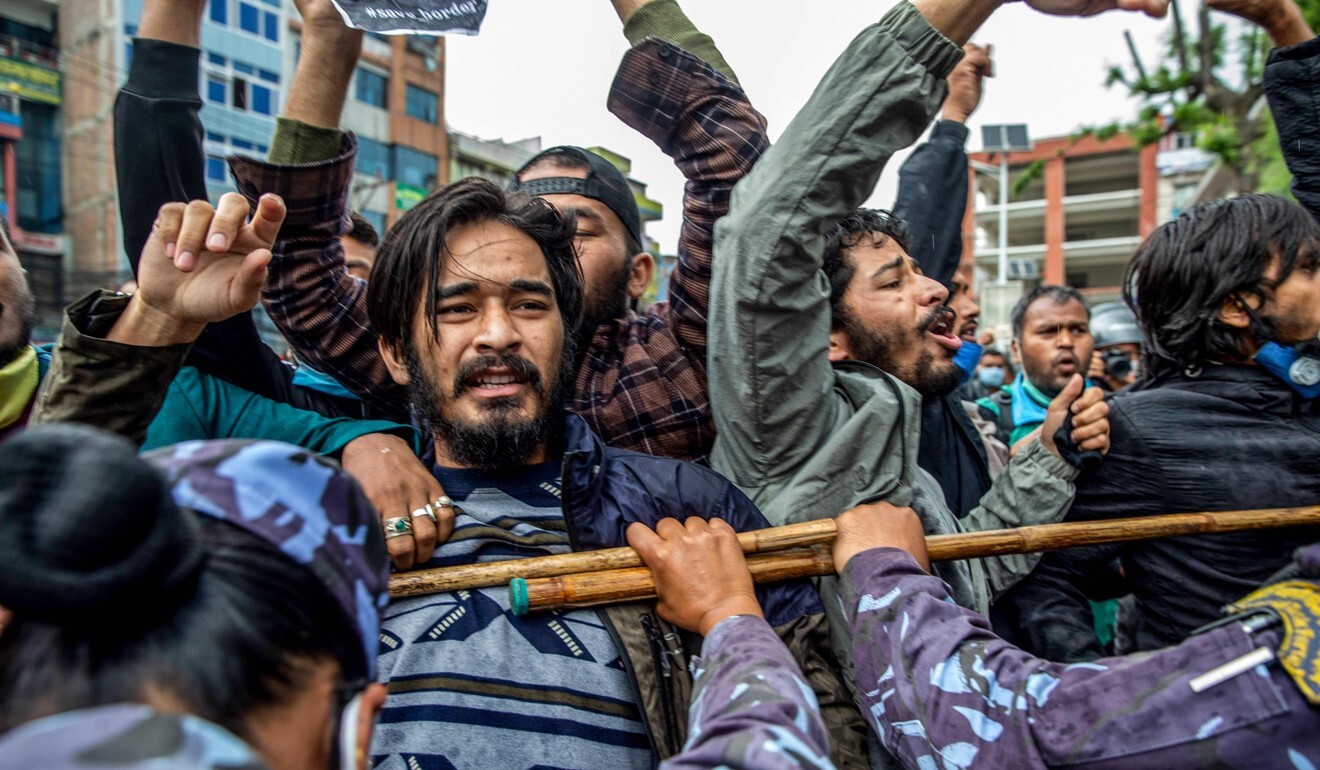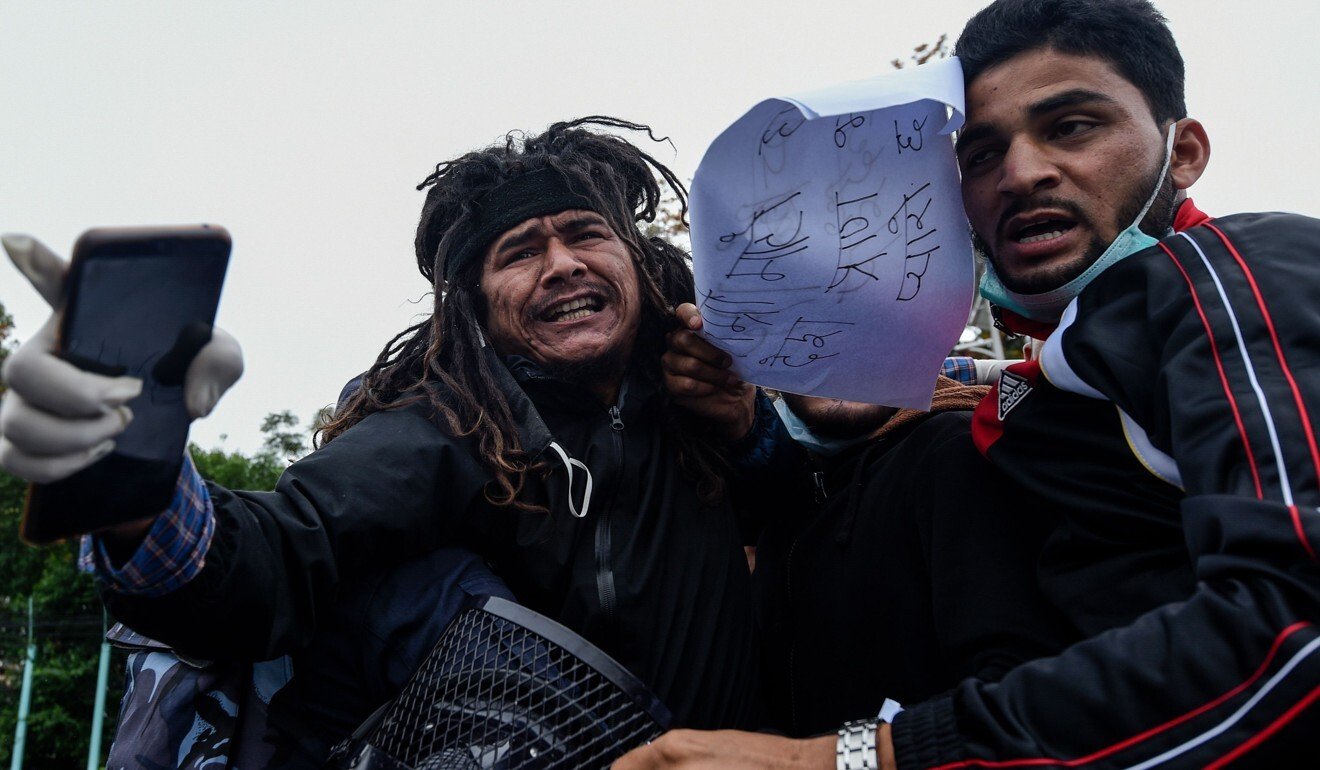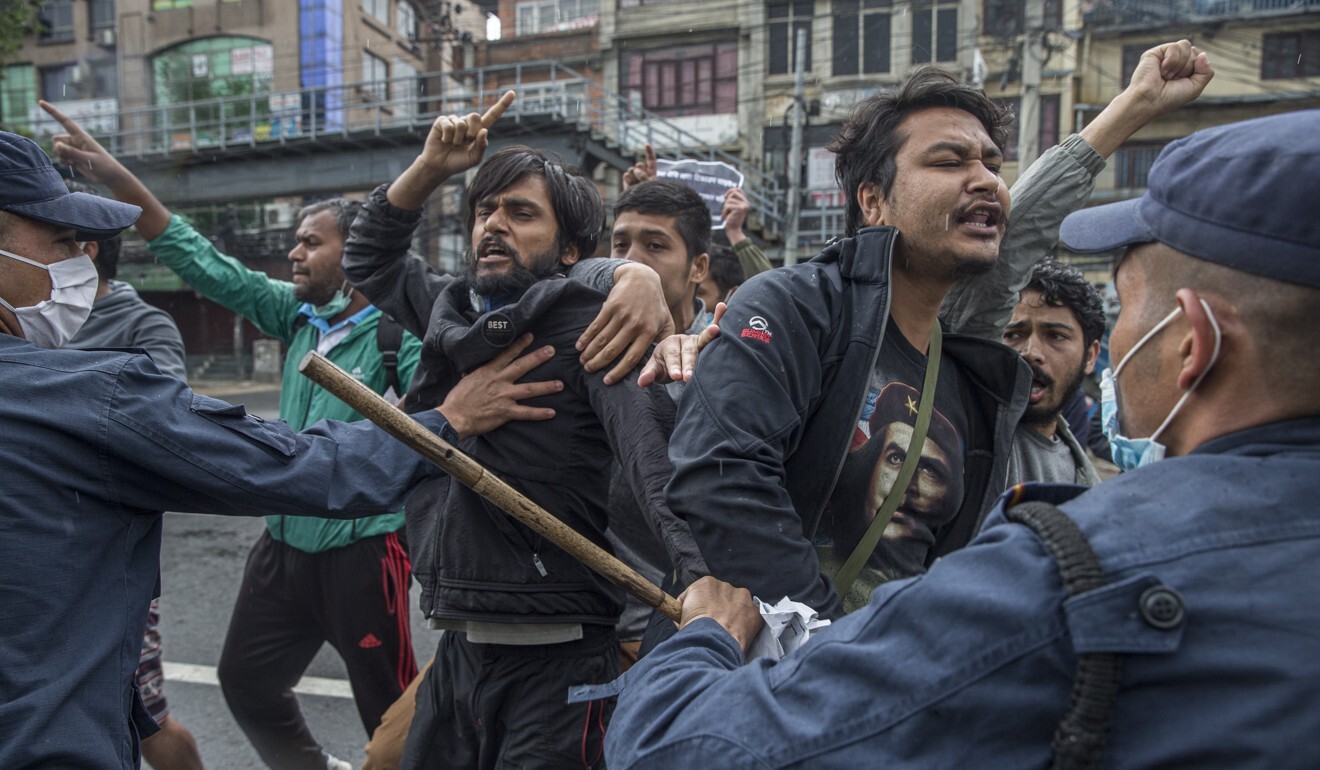
Chinese, Indian soldiers wounded in high-altitude clash at border near Tibet
- The clash involved fistfights and stone-throwing at a remote but strategically important mountain pass near Tibet
- There have been long-running border tensions between India and China, with a bitter war fought over India’s northeastern-most state of Arunachal Pradesh in 1962

Several Indian and Chinese soldiers were injured in a high-altitude cross-border clash involving fistfights and stone-throwing at a remote but strategically important mountain pass near Tibet, the Indian Army said on Sunday.
There have been long-running border tensions between the nuclear-armed neighbours, with a bitter war fought over India’s northeastern-most state of Arunachal Pradesh in 1962.
“Aggressive behaviour by the two sides resulted in minor injuries to troops. It was stone-throwing and arguments that ended in a fistfight,” Indian Army Eastern Command spokesman Mandeep Hooda said.
The “stand-off” on Saturday at Naku La sector near the 4,572-metre Nathu La crossing in the northeastern state of Sikkim – which borders Bhutan, Nepal and China – was later resolved after “dialogue and interaction” at a local level, Hooda said.
“Temporary and short duration face-offs between border-guarding troops do occur as boundaries are not resolved,” he added.
The violent clash is the first between the two countries since 2017, when there was a brawl between Chinese and Indian soldiers near the northwest Indian region of Ladakh.
In the same year, there was a high-altitude standoff in Bhutan’s Doklam region after the Indian army sent troops to stop China from constructing a road there.

Meanwhile, Nepal has asked India “to refrain from carrying out any activity inside its territory” after expressing regret over New Delhi’s inauguration of a link road in the disputed territory at a strategic three-way junction with Tibet.
“This unilateral act runs against the understanding reached between the two countries including at the level of prime ministers that a solution to boundary issues would be sought through negotiation,” Nepal’s Ministry of Foreign Affairs said in a statement on Saturday.
Nepal’s statement came a day after Indian Defence Minister Rajnath Singh inaugurated a 80km link road to Kailash-Mansarovar Yatra Route through Lipu Lekh pass, a disputed territory currently under control of Indian border security forces. Kailash-Mansarovar is an important Hindu religious site in Tibet.

In a separate statement, Nepal’s ruling Nepal Communist Party accused India of undermining Nepal’s sovereignty.
Replying to Nepal’s statement, India’s Ministry of External Affairs on Saturday said that the road "lies completely within the territory of India".
"India is committed to resolving outstanding boundary issues through diplomatic dialogue and in spirit of our close and friendly bilateral relations with Nepal," a ministry spokesperson said.

Kathmandu has long maintained claims over the highly strategic areas of Limpiyadhura, Kalapani and Lipu Lekh although the areas have been policed by Indian troops since India fought a brief war with China in 1962.
In 2015, Kathmandu objected to an agreement between India and China to include the Lipu Lekh Pass as a bilateral trade route without Nepal’s consent, while a similar diplomatic row emerged when India released a new political map including the disputed territories in 2019.